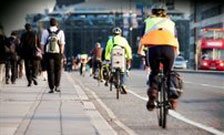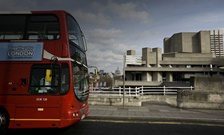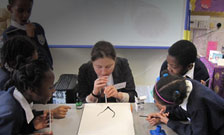

The Environmental Research Group is leading a major research project to better understand the health problems caused by air pollution and noise from traffic in London.
The Environmental Research Group is leading a major research project to better understand the health problems caused by air pollution and noise from traffic in London.
The traffic project is funded by a £2million grant under the cross-Research Council Environmental Exposure and Health Initiative (EEHI) with funds from the Natural Environment Research Council (NERC), the Medical Research Council (MRC) , and the Department of Health (DoH).
King's are leading a consortium of over 20 investigators from Imperial College London, St George's, University of London and The London School of Hygiene and Tropical Medicine.
"This is an exciting new project which will tell us much more about how pollution affects the health of people in the city. We already know traffic pollution can have adverse effects on the health of some people living and working in London, but this project will allow us to understand better the risks to individuals as they go about their everyday lives."
Professor Frank Kelly, Director of the Environmental Research Group.
The first part of the study is concerned with detailed measurements of air pollutants with chemical analyses of particles to investigate their toxicity and sources.
This will include linking these data to daily data from registries of deaths and hospital admissions to study which mixtures and sources of particles are most likely to have adverse effects. It will be one of the first studies to link epidemiological analyses to laboratory analyses in this way.

The second part is the development of models of exposure to air pollution which draw on information about concentrations, emissions and time-activity. This includes a novel approach using anonymous Oyster card information and/or GPS on mobile phones, which will then be analysed alongside pollution measurements to create a mathematical model. This model will provide a way of investigating the effects of various policy scenarios on actual exposure of population sub-groups. It will provide a guide to enable people to adapt their journeys if desired and where possible to reduce their exposure to harmful vehicle emissions. Lastly, it will improve the estimation of exposure for health studies which generally rely only on concentrations at the postcode or address level.


Air Pollution and Traffic Proximity Metrics used in the epidemiological analyses
© Imperial College London, Environmental Research Group. All rights reserved 2020.